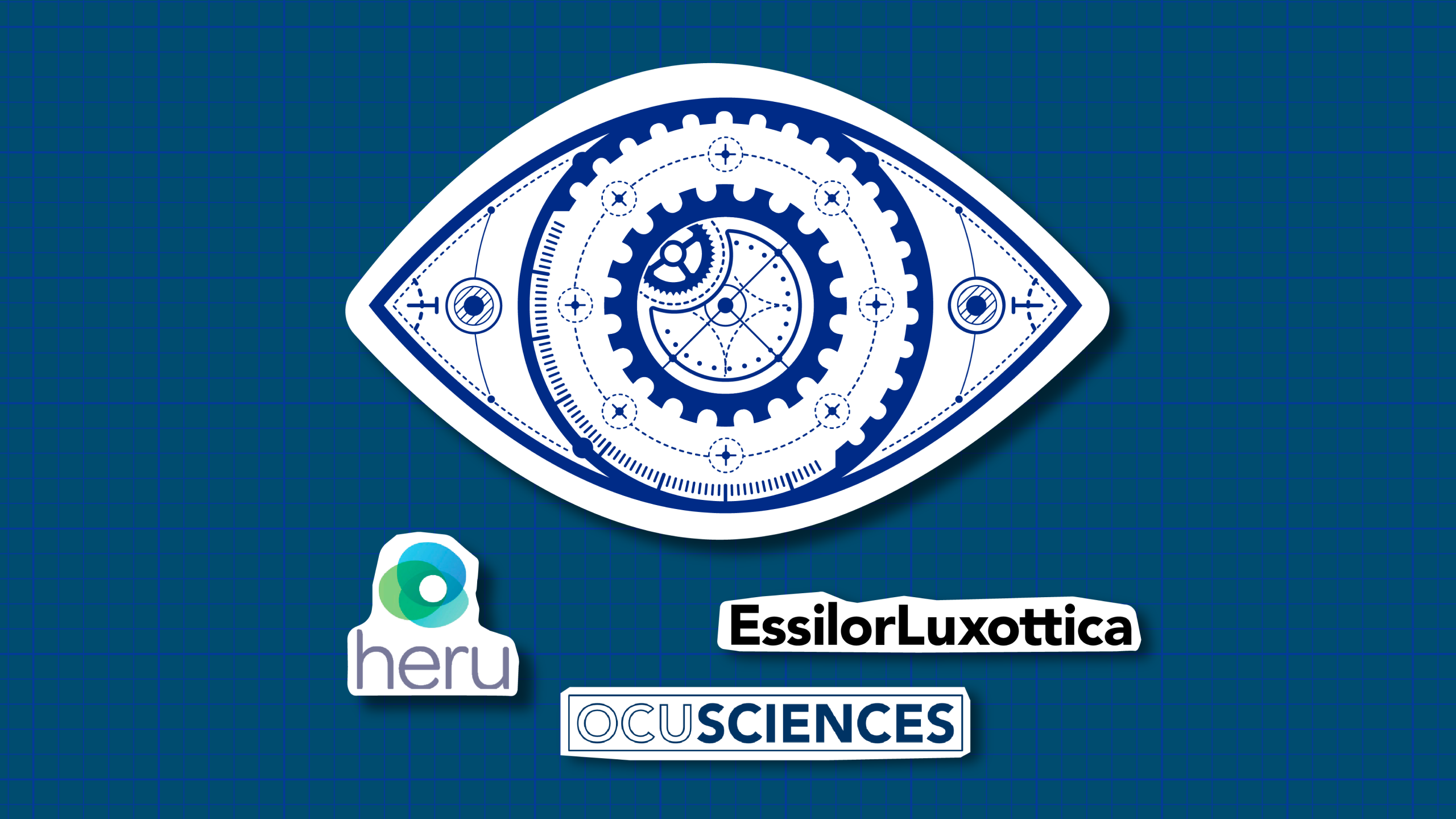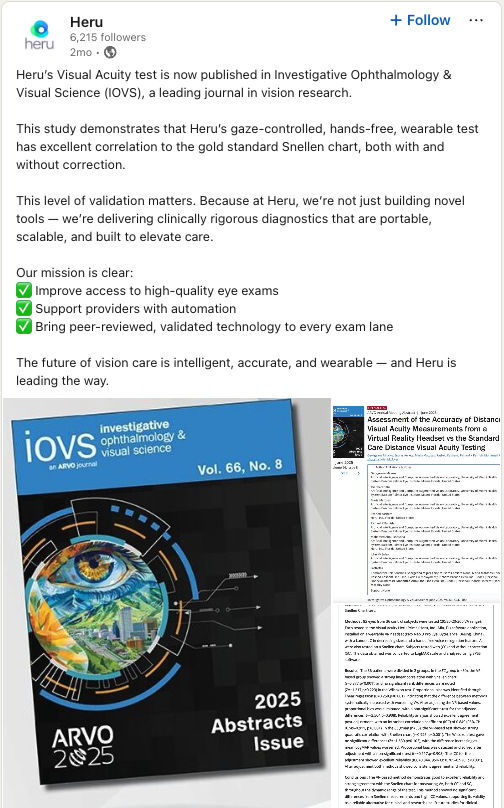AI just hit a few milestone moments in eye care diagnostics…are you keeping up?
Artificial intelligence (AI) isn’t just knocking on ophthalmology’s door anymore…it’s already in the exam lane. With major announcements from Heru (Florida, USA), EssilorLuxottica (Charenton-le-Pont, France) and OcuSciences (Michigan, USA), the AI-fueled transformation of eye care diagnostics is moving from promise to practice, reshaping how clinicians assess, diagnose and manage patients.
Heru reaches one million eyes tested
Heru has crossed a major threshold, announcing that its wearable, AI-powered vision diagnostic platform has now tested more than one million eyes—a clear sign of strong adoption among U.S. eye care professionals.
“Surpassing one million eyes tested is a testament to the trust that a growing collective of eye care professionals has placed in Heru to help them care for their patients,” said Dr. Mohamed Abou Shousha, Heru founder and CEO.
Developed at Bascom Palmer Eye Institute, Heru’s platform digitizes and automates manual eye tests, replacing bulky legacy equipment with a portable, FDA-registered wearable device.
“At Bascom Palmer, our goal is to constantly advance the paradigm of care for patients everywhere,” said Dr. Eduardo Alfonso, director of Bascom Palmer and professor and chair of Ophthalmology at the University of Miami Miller School of Medicine.
“Heru is a direct result of this commitment, transforming a decade of dedicated research in artificial intelligence and virtual reality into a practical tool that is now elevating clinical care on a national scale.”
EssilorLuxottica acquires RetinAI
Meanwhile, EssilorLuxottica continues to expand its med-tech reach with the acquisition of Ikerian AG (Bern, Switzerland), operating as RetinAI, a health technology company specializing in AI and data management for eye care. This addition brings powerful machine learning and computer vision software into EssilorLuxottica’s growing ecosystem.
RetinAI announces the news on its LinkedIn page.
RetinAI’s FDA-cleared and CE-marked platform, RetinAI Discovery, leverages AI models to aid in the diagnosis and monitoring of diseases such as age-related macular degeneration, glaucoma and diabetic retinopathy.
“In the past year alone, we’ve made several bold moves in med-tech, all with the goal of building the most comprehensive, digitally enabled patient journey,” said Francesco Milleri, chairman and CEO at EssilorLuxottica. “RetinAI will add incredible value to an ecosystem that already includes comprehensive eyecare, advanced diagnostics, therapeutic innovation and surgical excellence.”
This acquisition builds on EssilorLuxottica’s recent med-tech momentum following its purchases of Optegra (London, UK), Heidelberg Engineering (Heidelberg, Germany), Cellview Imaging (Toronto, Canada) and Espansione Group (Bologna, Italy).
OcuSciences gains EU CE clearance
Adding to the momentum, OcuSciences has received CE clearance in the European Union for its eye health diagnostic device, OcuMet Beacon. The approval paves the way for deployment across medical facilities in the UK and Europe, including hospitals, ophthalmic clinics and research institutions in England, Wales and Germany.
“Securing CE clearance is a major milestone for OcuSciences and reflects our dedication to advancing the standard of care in ophthalmology,” said OcuSciences CEO Kurt Riegger. “The growing adoption of our technology by leading ophthalmic clinical centers across Europe highlights its unique value and diagnostic potential to improve disease detection and management and [is] particularly helpful in monitoring treatment.”
READ MORE: Foundation Fighting Blindness to Host a Mental Health Webinar for Eye Care Professionals
The OcuMet Beacon previously received FDA clearance in May 2023 for ophthalmoscope scanning using infrared and autofluorescence imaging of the retina.
The takeaway
From AI-driven diagnostics to next-generation wearable tools and strategic med-tech acquisitions, these milestones point toward a rapidly evolving landscape in ophthalmology. One where algorithms and analytics are becoming just as essential as optics and illumination. The future of diagnostics may well be automated, intelligent and, quite literally, visionary.
Editor’s Note: This content is intended exclusively for healthcare professionals. It is not intended for the general public. Products or therapies discussed may not be registered or approved in all jurisdictions, including Singapore.

